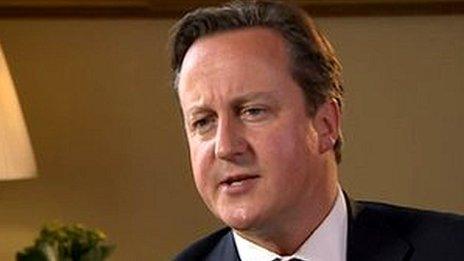North Belfast parade: Cameron says panel is a bid to 'defuse a difficult situation'
- Published
Speaking to BBC News NI's Stephen Walker, Mr Cameron said it was right to "bring people together, to try and find a local solution"
Prime Minister David Cameron has said a decision to set up a panel to examine a parade dispute in Belfast is an attempt to "defuse" a difficult situation.
The panel was announced by Secretary of State Theresa Villiers, to look at ways of resolving the 15-month deadlock over a contentious Orange Order march.
Unionists had campaigned for an inquiry into the north Belfast parade dispute.
Mr Cameron said his government had not caved into unionist demands and that Ms Villiers was right to seek a solution.
'Further clarification'
"This is a particularly difficult issue and I think the secretary of state is absolutely right to set up a panel and set out, today, its terms of reference to see if an agreement can be found," the prime minister said.
"It's about trying to defuse this difficult situation and make this work for everyone concerned."
In a joint response, unionist leaders said they had considered Ms Villiers' announcement but wanted further clarification on "the panel's terms of reference, membership, functions and reporting".
However, Sinn Féin have rejected the new panel, accusing Ms Villiers of giving in to unionist pressure and the SDLP said the move had undermined the work of the Parades Commission.
Sinn Féin's Gerry Kelly said: "What she has announced is basically the British government kowtowing to an ultimatum made by the unionist parties after they walked out of the party leadership talks.
He added: "This is not about mediation, it is about allowing unionism to make a precondition before going into very important talks. It does not bode well for the talks."
The dispute centres on applications by Ligoniel Orange Lodge to march along a stretch of Belfast's Crumlin Road that separates nationalist and unionist communities.
For the past two summers, they have been refused permission to hold the return leg of their annual 12 July parade along the route.
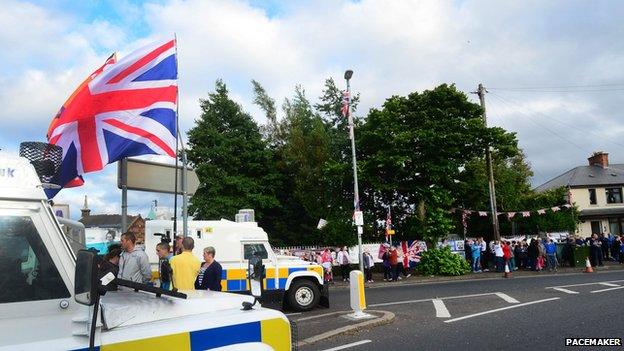
The scene in north Belfast before a parade in July 2013
In July this year, unionist leaders demanded an inquiry after the Parades Commission banned the return leg for the second year in a row.
Mr Cameron denied the government had given in to unionist pressure, saying: "Where you have these problems, I think there are occasions for the secretary of state to act in this way to try and bring people together, to try and find a local solution.
"In the end these parade issues are only solved when people agree to sit round the table and come up with an answer that everyone can find acceptable."
The panel, set up by Ms Villiers, will include academics and other community figures.
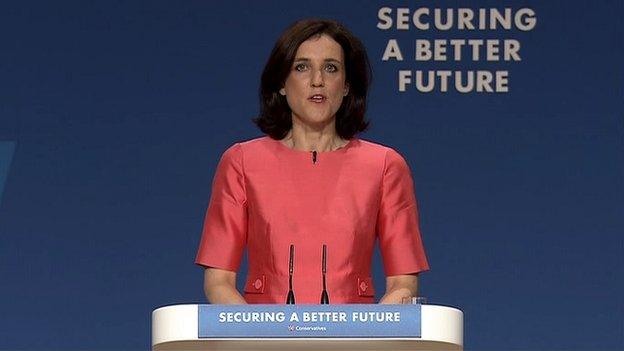
Secretary of State Theresa Villiers has announced a panel to examine a parade dispute in north Belfast.
In a statement on Tuesday, the secretary of state said she had been clear from the outset that "nothing would be done which undermined the role or remit of the Parades Commission as the lawful authority for adjudicating contentious parades in Northern Ireland".
Ms Villiers said that "having listened carefully" to the views expressed by political parties and other interested bodies, there was "merit" in a panel being established.
'Mediation'
"In discussion, there were divergent views about the merits of such a proposal," she said.
"But there was also a measure of consensus that something had to be done to help break the deadlock in the Ardoyne/Twaddell area.
"And that mediation and dialogue between local people aimed at reaching a local accommodation should be an essential ingredient of any such approach."
It is understood the panel is being asked to report back by the end of January.
In a joint statement, Unionist leaders said: "We believe we need further clarification from the secretary of state on some of the panel's terms of reference, membership, functions and reporting.
"Our objective is to resolve issues in parading and we want to ensure the panel is capable of achieving that objective. After this we will meet again to discuss the next steps in our joint response."
Ivan Lewis MP, Shadow Secretary of State for Northern Ireland said he supported the panel move.
"This is consistent with the Parades Commission's request for external support to address some very complex and challenging issues," he said.
The Parades Commission said it welcomed the move.
"In its determinations for the 12 July 2014 parades in north Belfast, the commission stated that parading disputes are difficult to resolve in isolation of measures to address issues of culture, the past and identity," a spokesman added.
"The commission did not prescribe what these measures might be, but stated that any initiative must have the confidence and endorsement of local communities."
- Published7 October 2014
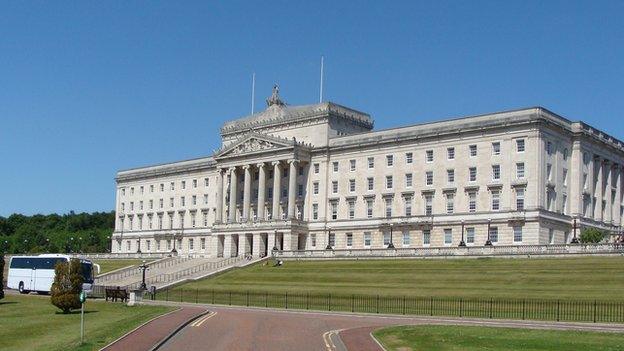
- Published29 September 2014

- Published28 September 2014
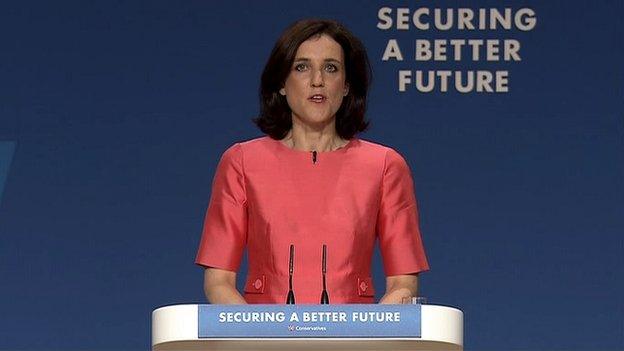
- Published14 July 2014
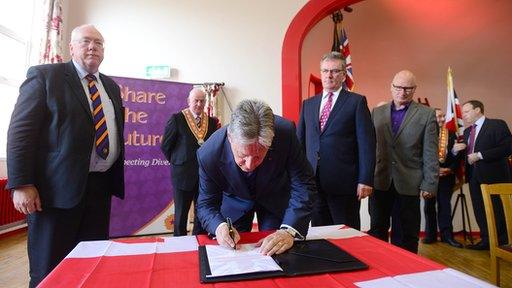
- Published10 July 2014

- Published22 July 2014
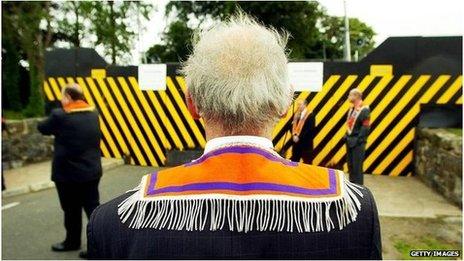
- Published2 July 2014
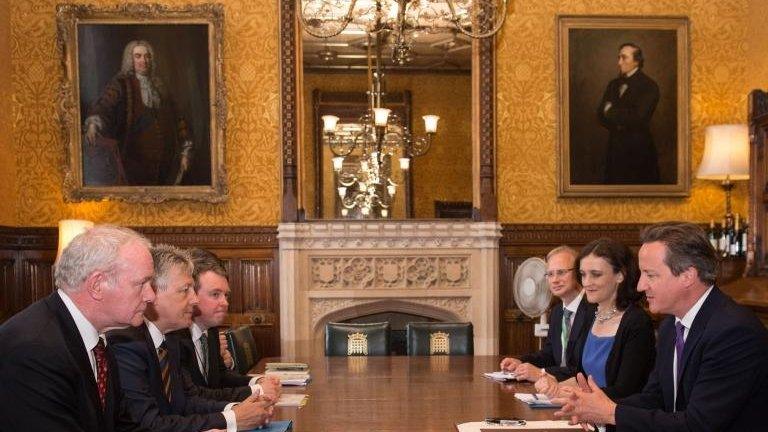
- Published3 July 2014
- Published15 July 2013
- Published12 December 2014
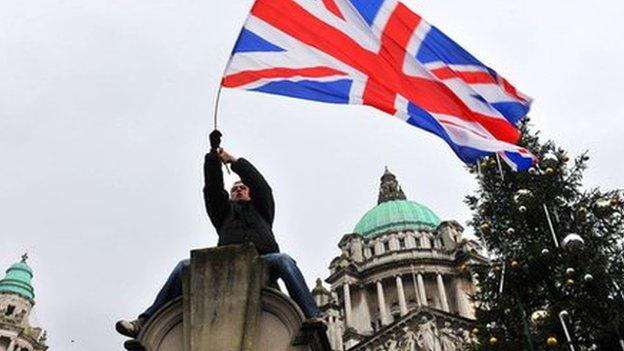
- Published9 June 2014
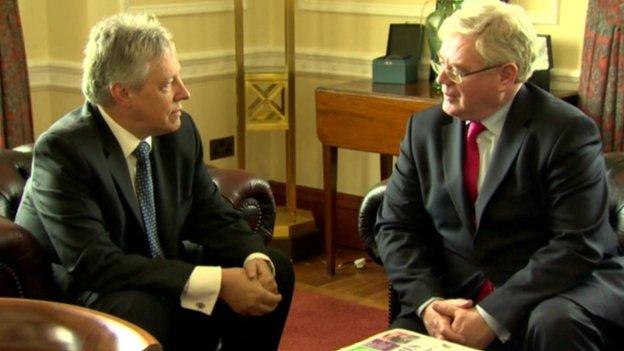
- Published27 September 2013
